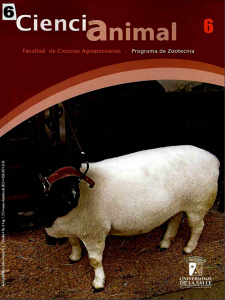Abstract
<p>Reproductive events are influenced by factors such as age, weight, race and the environment. The purpose of this investigation was to determine differences in the response to the implementation of a fixed-time artificial insemination (FTAI) protocol in purebred and crossbred heifers with variations in the days of administration of the prostaglandin dose (PGF2α), over pregnancy rates. The study was conducted at a farm in the municipality of Barranca de Upía, Meta, Colombia. A hormonal protocol was established to conduct the FTAI and the heifers were divided into two groups: group 1 (n = 28), which received the prostaglandin dose on the sixth day of treatment, and group 2 (n = 24), which received the dose on day eight. A general pregnancy rate of 36.53% was obtained and, by groups, of 32.14 % and 41.67 % in groups 1 and 2, respectively. Regarding the age and weight variables per group and the pregnancy rate obtained, statistically significant differences (p ≤ 0.05) were found. In conclusion, and under the conditions of this study, the administration of prostaglandin in purebred and crossbred Brahman heifers on the sixth day of the FTAI protocol showed a lower pregnancy rate compared to the administration of the prostaglandin dose on the eighth day of the synchronization protocol, which suggests that applying the luteolytic agent dose on day six of the treatment does not represent an increase in the pregnancy rate.</p>Downloads
Download data is not yet available.



